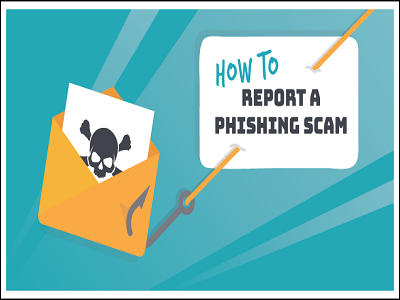How to Identify and Report Phishing Scams
One of the most significant benefits that the Internet offers users is allowing them to express their opinions, set up businesses, pursue their hobbies, and do whatever they want. Unfortunately, some users have taken advantage of this to set up phishing scams. Often, these individuals use email or instant messages to trick other users into providing their personal information.
This information ends up being used to steal passwords, social security numbers, and even bank account details. Phishing has been on the rise in the past few years, with victims losing billions every year. Fortunately, you can identify and report phishing scams, even though there isn’t a dedicated body for monitoring what happens on the Internet.

Recognizing Phishing
For you to report a phishing attack, you first need to know what this scam is all about. Several signs could help you identify a phishing phone call, text message, or email. Here are the tell-tale signs of phishing:
Suspicious Calls/Texts/Email
Often, phishers target their victims using phony calls, text messages, or emails that are made to look like they are from someone that the victim knows or trusts. The communication may be twisted to look like it’s coming from your credit card company, your bank, an online payment service, or an e-commerce store. If you are suspicious about a text, email, or phone call from someone who purports to know you, don’t provide any personal information.
Use of Persuasive Language
Typically, phishing calls or emails use persuasive language to trick victims into divulging sensitive information about them or the companies that they work for. Sometimes, you can even get tricked into opening a link or attachment that claims you must confirm personal information about you, or that there has been some suspicious activity on your payment accounts.
Such links or attachments often look like they are from a company that you know or trust. However, phishers who send such links have nothing to do with those companies that they claim to work for. Falling victim to these scams can have considerable consequences to you as well as the reputation of the company that got spoofed. Therefore, you should report phishing scams to a company as soon as you realize that scammers have spoofed its website.
Protecting yourself from Phishers
Most people use email spam filters to keep phishing emails out of their mailboxes. Nonetheless, this doesn’t always work for them because phishers always try to outsmart the filters. Therefore, it makes sense to have an extra layer of protection.
You can prevent and report phishing attempts by protecting your computer using security software. Ensure that the software updates automatically so that it can deal with new security threats. Besides, protect your mobile devices by setting the security software to update automatically. Two-factor authentication can help you safeguard your passwords all the more.
How to Report Phishing Calls/Texts
After learning how to protect yourself from phishers, it will be easier for you to report phishing attempts so that the scammers are stopped in their tracks. You should make a report as soon as you receive a phishing email or message. Upon receiving a suspicious email, do not take the bait.Instead, forward it to the Federal Trade Commission via spam@uce.gov. A copy of the phishing email should also be forwarded to the Anti-Phishing Working Group via reportphishing@apwg.org. On the other hand, report phishing text messages by sending them to SPAM (7726). Phishing attacks should be reported to the FTC through ftc.gov/complaint.
How to Report Phishing Websites
Phishing per se involves the use of fake websites that are designed to look trustworthy. This is done to lure you into revealing personal information such as bank details. This information can be used after that to steal from you. If you find yourself on such a website, report phishing immediately to Google’s Safe Browsing team. Enter the site’s URL and other relevant comments on the Report Phishing page so that those behind it can be stopped before they target more victims.
Some websites contain misleading information. Others blatantly perpetrate phishing scams, which should be reported to prevent you or other Internet users from becoming victims. A phishing website isn’t necessarily one that has been spoofed to resemble a genuine site.
Websites that purport to sell goods or services at incredibly low prices, and those whose content makes grand get-rich-quick claims also need to be reported. Scammers often use such websites to steal from unsuspecting Internet users. You should report these websites to the Internet Crime Complaint Center.
A phishing attack can hit you anytime. Whenever it comes, you should be ready for it. NuEduSEC has a range of Secure Web Filtering and Enhanced Visibility products that help you filter your network’s traffic to identify and malicious code to prevent network infection.